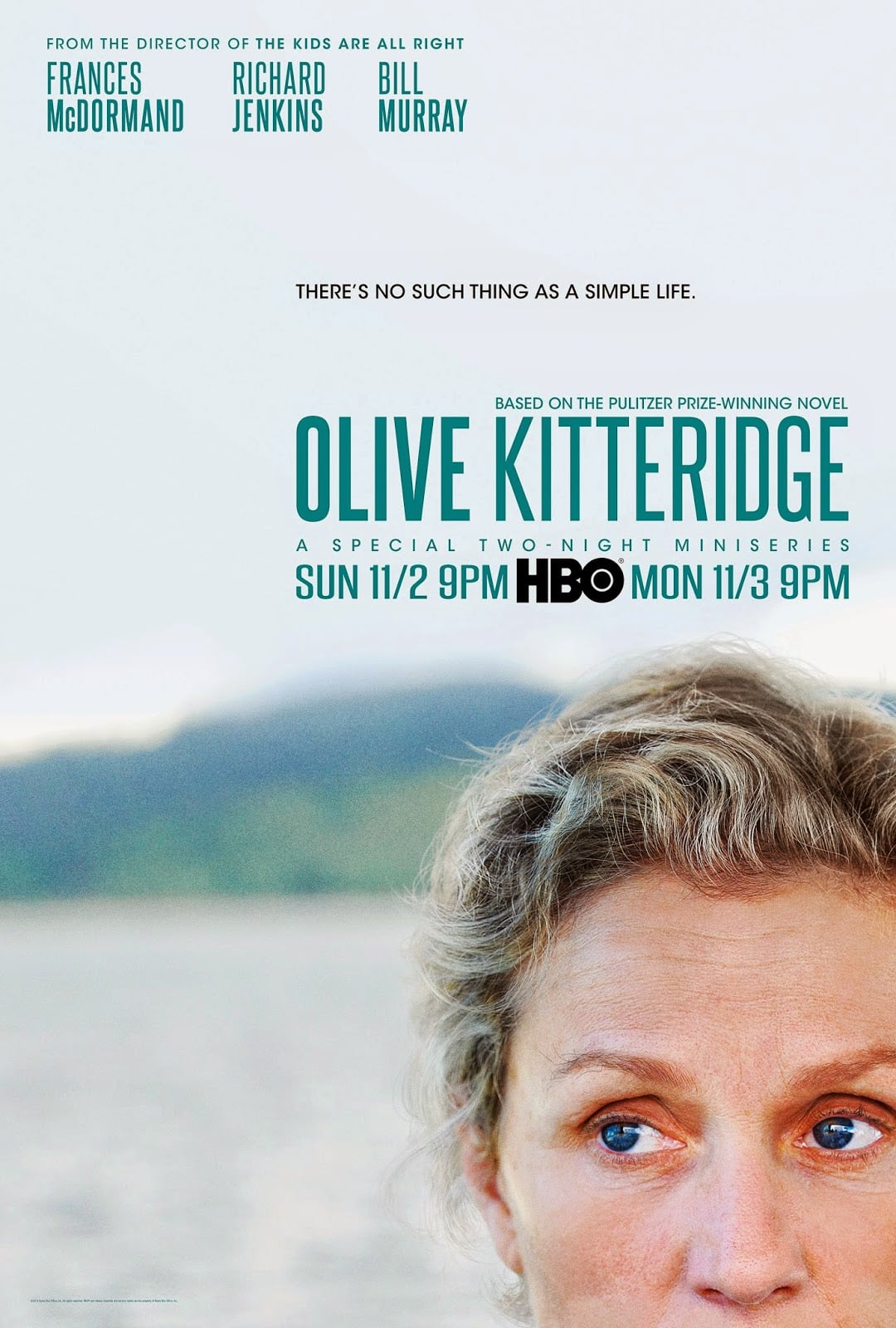
HBO’s four-part series Olive Kitteridge is one of the best things I’ve ever watched. Frances McDormand is perfect in the title role, a middle-aged Maine native with layers of memories and emotions underneath her severe expression. It’s based on Elizabeth Strout’s novel of the same name (one of my favorite books ever) and I’m so glad McDormand helped turn it into a movie. The novel is excellent and, stunningly, so is the film adaptation.
This film is for anyone who’s wondered why there aren’t more movies about people in the second half of their lives. We watch Olive finish raising her son and eventually become a grandmother, we see her navigate a marriage that has lasted 20 years, then 30, then 40. We see her make choices and live with the consequences. In four approximately one-hour parts, the story covers decades in the lives of its main characters, giving an extremely satisfying sense of where they start and where they end up.
I love this story for its realism and its practical view of death. Olive is a math teacher and one of my favorite parts is watching her talk to one of her former students who – as a young adult – seems to have returned to his home town to kill himself. Without letting on that she senses his mission, Olive chats with him about town changes, former classmates, her own father’s suicide and her son’s upcoming wedding. Yes, it’s with that kind of casualness that Olive manages to turn a chatty neighborly exchange into the direct emotional support that the young man clearly needs. With rough empathy and straight talk, she distracts him from his purpose.
I always appreciate popular culture that deals maturely and sympathetically with mental illness. Olive and her former student discuss bipolar disorder and depression in their families. Other scenes in the series address the need for adult children to process their childhoods, the value of therapy and the isolation one can face in old age if she hasn’t dealt
squarely with past pain, received and inflicted. It’s a very interior film, about what goes on inside people hearts, but is saturated with gorgeous shots of the coastline of the American northeast.
squarely with past pain, received and inflicted. It’s a very interior film, about what goes on inside people hearts, but is saturated with gorgeous shots of the coastline of the American northeast.
Be prepared: Olive Kitteridge isn’t a character to love. She’s sharp-tongued, merciless with criticism, stingy with her smiles and certain that she’s right in all situations. She reminds me of my mother and of the woman I’ll turn into one day. Actually, who am I kidding? I’m halfway there. I’m judgmental, stubborn, free with my opinions and won’t tolerate bullshit, and I don’t expect these traits to soften as I move into my 50’s. Maybe it’s Olive’s lack of loveableness that draws meto her. She’s almost impossible to get along with, but you always know where you stand with her. Watching McDormand’s character with Bill Murray’s Jack Kennison in the fourth part is a pleasure: they might try, but they can’t out-crotchety each other.
Right now HBO GO is offering the four-part series in the U.S. until December 30th. After that I guess we have to wait until it makes its way to Netflix or other online platforms. If you subscribe to HBO, I urge you to watch it if you like character-driven narratives about relationships and human nature. In the U.K. the miniseries airs December 14, 2014 on Sky Atlantic (I got that from Wikipedia. I don’t know what Sky Atlantic is).
BUT if you can’t watch it on HBO, please go find Elizabeth Strout’s novel on which the film is based. I read it three times in two months back in 2011 and clearly it’s time for me to read it again. The book gives the same experience as watching the series, but with even richer detail of the world of this small town and more plotlines and insights into its inhabitants. It’s one of my favorite books ever. In the film (and in the book) a chorus of children refer to Olive as a witch at certain points, but she doesn’t seem to mind. If witches don’t have to suffer fools and tolerate useless social protocols, then what’s wrong with being a witch? Especially if it makes children leave you the hell alone.



0 Comments